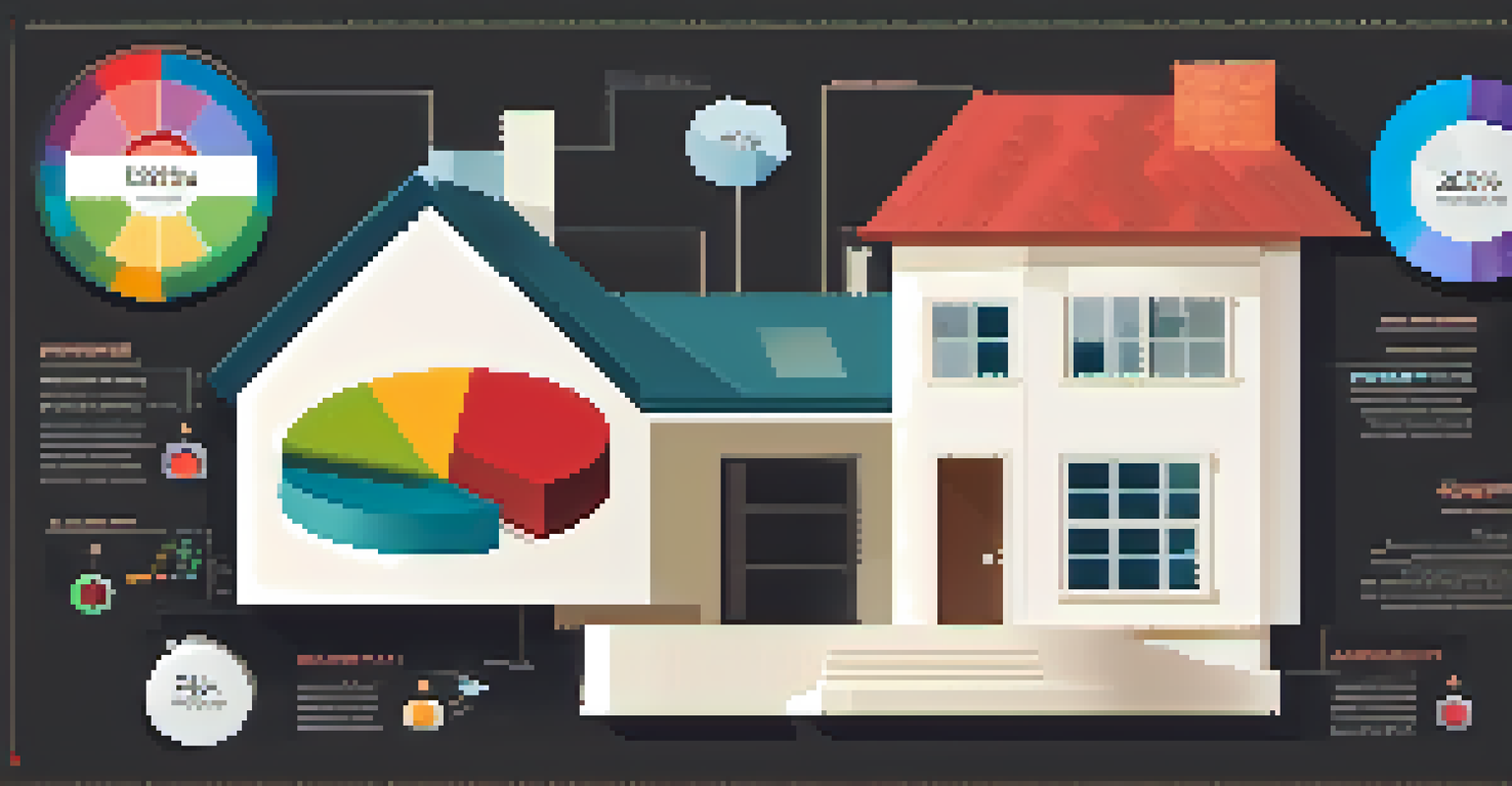Home Equity as Emergency Fund: Pros and Cons

Understanding Home Equity: What Is It Really?
Home equity is the portion of your home that you actually own, calculated by subtracting any outstanding mortgage balance from your home's current market value. For example, if your home is worth $300,000 and you owe $200,000 on your mortgage, your home equity is $100,000. This equity can be a valuable resource when considering financial options, especially in emergencies.
In the middle of every difficulty lies opportunity.
Many homeowners face unexpected expenses, such as medical bills or urgent repairs, making it tempting to tap into home equity. By using home equity as an emergency fund, you can access a significant amount of cash without the need for traditional loans. However, understanding how this process works is essential to making informed decisions.
It's crucial to remember that while home equity can provide financial relief, it also means borrowing against your home. This can lead to increased debt and potential risks if not managed carefully, setting the stage for the pros and cons of using this strategy.
Pros of Using Home Equity for Emergencies
One of the main advantages of using home equity as an emergency fund is the potential for lower interest rates compared to traditional loans or credit cards. Since home equity loans and lines of credit are secured by your property, lenders often offer better terms. This can save you money in the long run, especially when unexpected costs arise.

Another benefit is the flexibility that home equity provides. You can choose to withdraw only the amount you need, rather than taking out a lump sum. This means you can use it strategically, ensuring you borrow just enough to cover your emergency without overspending.
Home Equity: A Valuable Resource
Home equity represents the portion of your home that you own and can be a significant financial resource during emergencies.
Additionally, the interest paid on home equity loans may be tax-deductible in certain situations. This can further ease the financial burden of tapping into your home equity, making it a more appealing option for those facing emergencies. However, it's important to consult a tax advisor to understand your specific situation.
Cons of Tapping Into Home Equity
While accessing home equity can be beneficial, there are significant risks involved. One major concern is the possibility of foreclosure if you fail to repay the loan. Since your home is collateral, missing payments can put your home at risk, which is a substantial gamble when considering your family's security.
It's not about how much money you make, but how much money you keep, and how hard it works for you.
Moreover, using home equity can lead to increased debt. If you rely heavily on this option for emergencies, you may find yourself in a cycle of borrowing that becomes difficult to break. This can create financial stress and affect your credit score, leading to long-term consequences.
Lastly, depending on market conditions, your home's value could decline, negatively impacting your equity. If you need to sell your home during a downturn, you may not recover the equity you expected, which can complicate your financial situation further.
Alternative Emergency Fund Options to Consider
Before deciding to use home equity, it’s worth exploring alternative emergency fund options. One popular strategy is building a traditional savings account specifically for emergencies. This allows you to save money over time without the risks associated with borrowing against your home.
Another option is to consider a personal loan or credit card for emergencies. While these may come with higher interest rates, they don't put your home at risk. For those who are disciplined with repayments, this can be a viable way to manage unexpected expenses without jeopardizing homeownership.
Weighing Pros and Cons
Using home equity can offer lower interest rates and flexibility, but it also carries risks like potential foreclosure and increased debt.
Lastly, some individuals choose to invest in short-term savings bonds or high-yield savings accounts. These can provide a blend of accessibility and growth, allowing you to prepare for emergencies while earning some interest on your savings.
How to Access Home Equity Safely
If you decide that tapping into your home equity is the right choice, understanding the process is crucial. Start by assessing your current equity level and determining how much you need to borrow for your emergency. This will help you avoid overextending yourself financially.
Next, shop around for the best loan options and interest rates. Different lenders may offer varying terms, so it’s important to compare your choices. Look for reputable lenders who provide clear information and fair conditions to ensure you're making a sound financial decision.
Finally, ensure that you have a solid repayment plan in place before borrowing. Knowing how you will manage the loan payments will help you avoid pitfalls and maintain your financial health. This proactive approach can help you leverage your home equity without compromising your long-term stability.
The Importance of Financial Literacy
Navigating home equity and emergency funds requires a certain level of financial literacy. Understanding the basics of how loans work, interest rates, and repayment terms can empower you to make informed decisions. The more you know, the better prepared you are to handle financial challenges.
Consider taking financial literacy courses or workshops to build your knowledge. Many community organizations and online platforms offer free resources that can equip you with the skills needed to manage your finances effectively. This investment in your education can pay off significantly in times of need.
Explore Alternatives First
Before tapping into home equity, consider building a savings account, personal loans, or high-yield accounts as safer emergency fund options.
Moreover, staying informed about market trends and the housing market can help you anticipate changes that may affect your home equity. By keeping your finger on the pulse of financial news, you can make proactive choices that safeguard your financial future.
Conclusion: Making the Right Choice for Your Needs
In the end, deciding whether to use home equity as an emergency fund comes down to personal circumstances and risk tolerance. Weighing the pros and cons will help you make a decision that aligns with your financial goals and lifestyle. Remember, it's essential to consider all available options before making a commitment.
Reflect on your current financial situation, including your income, expenses, and existing debt. This will give you a clearer picture of whether tapping into your home equity is a smart move or if another option might serve you better in the long run.

Ultimately, the key is to approach the decision thoughtfully and with a clear understanding of the implications. Being prepared and informed will empower you to handle emergencies without compromising your financial future.